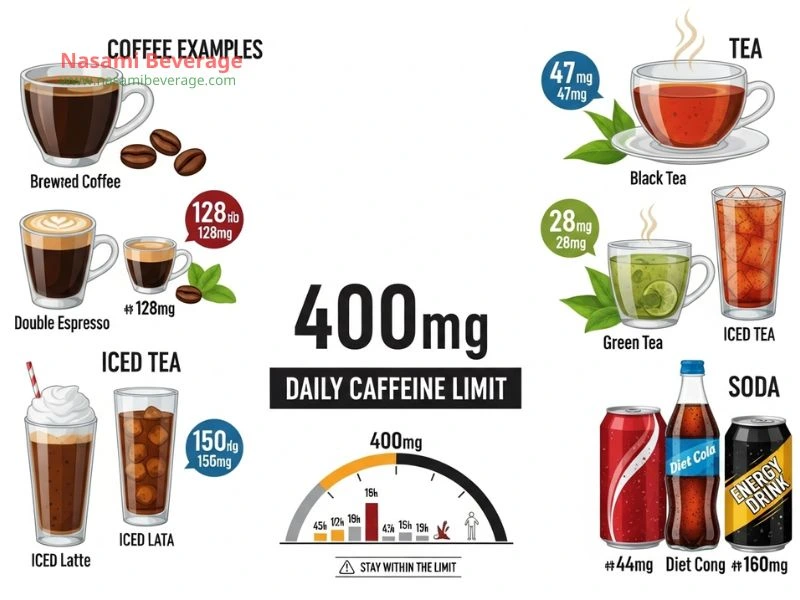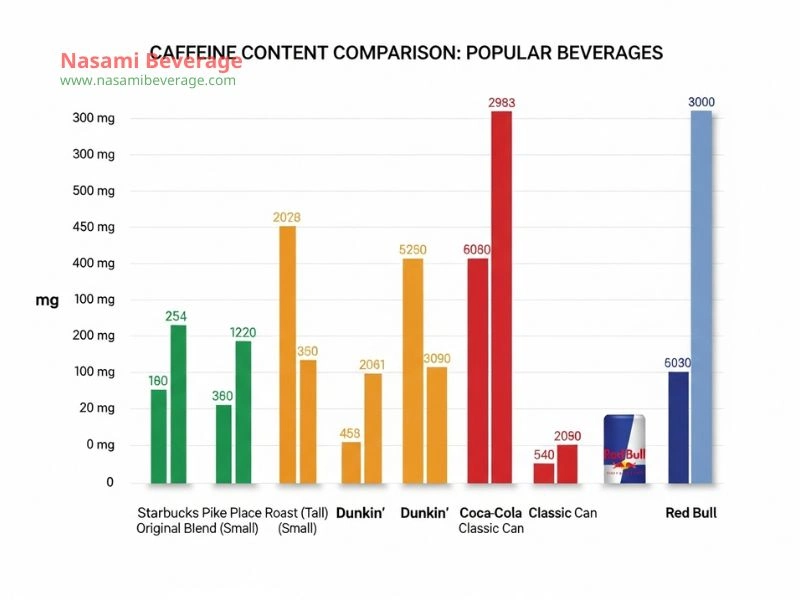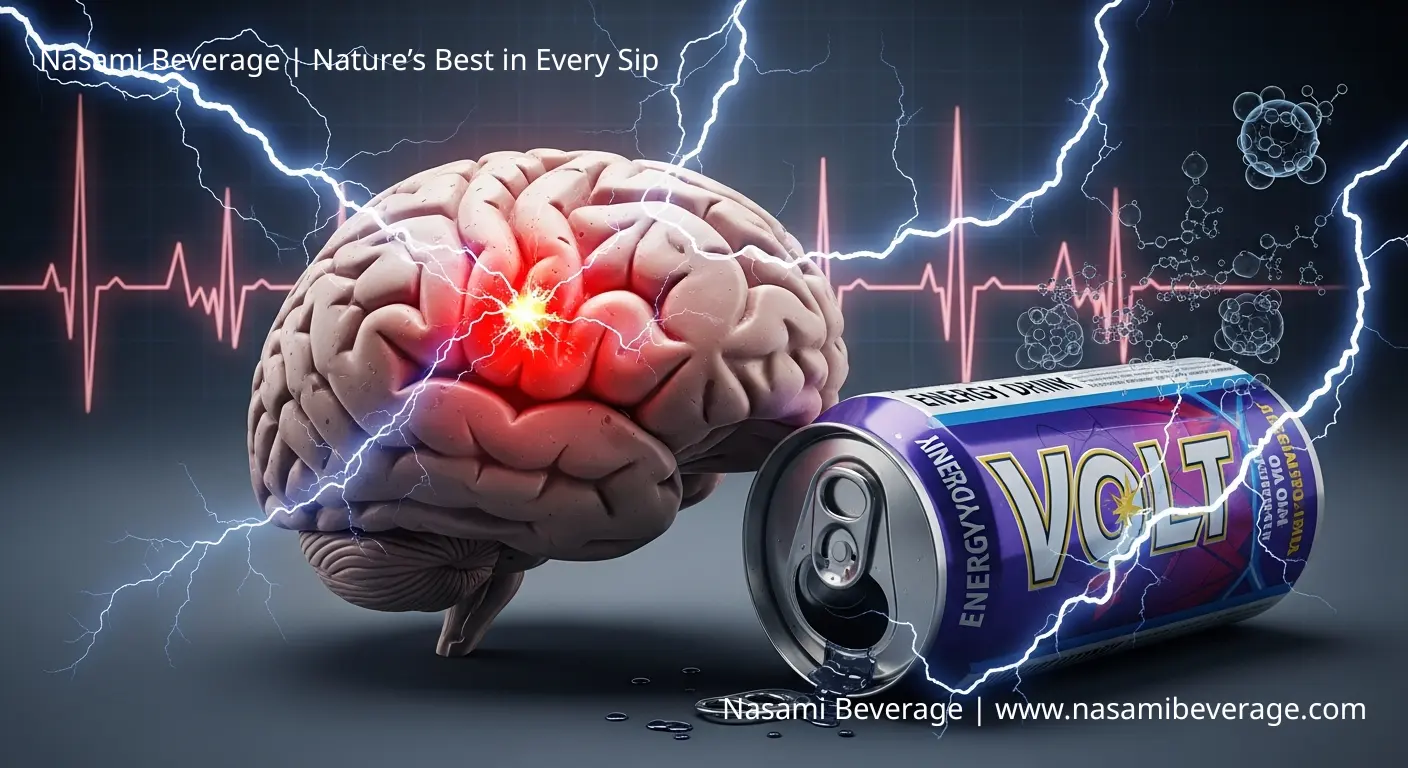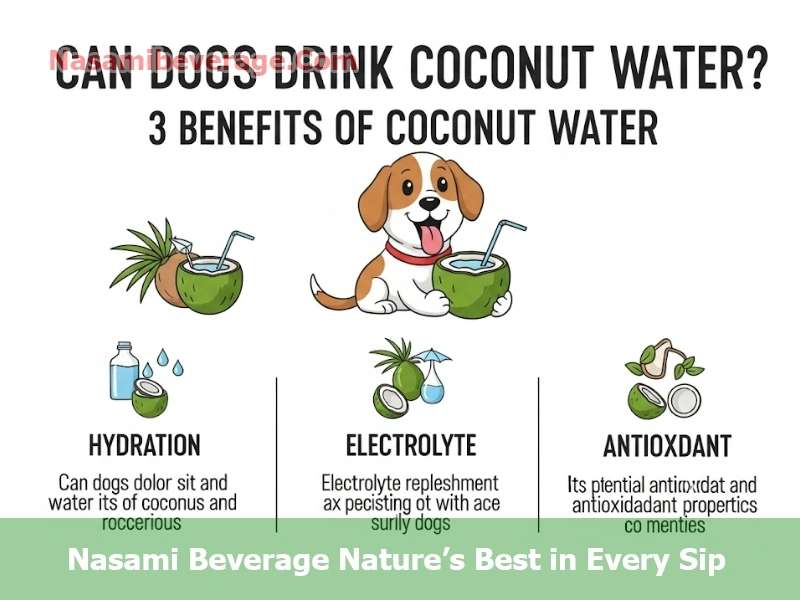For many, a morning cup of coffee or an afternoon tea is a non-negotiable ritual. Caffeine is the world’s most popular stimulant, helping millions feel more alert and focused. But how much is too much? As leaders in the beverage industry, the team at Nasami Beverage believes in informed choices. That’s why we’ve created this comprehensive guide to understanding the FDA recommended daily caffeine limit, helping you navigate your daily intake safely and effectively.
What is the FDA’s Recommended Daily Caffeine Limit?
The U.S. Food and Drug Administration (FDA) is the primary authority on food and drug safety, and its guidelines on caffeine are a crucial benchmark for consumers. Understanding this limit is the first step toward a healthier relationship with caffeine.
The 400 Milligram Guideline for Healthy Adults
For most healthy adults, the FDA has cited 400 milligrams (mg) of caffeine per day as an amount not generally associated with dangerous, negative effects.
This is roughly the equivalent of four 8-ounce cups of brewed coffee, 10 cans of cola, or two “energy shot” drinks. This daily caffeine intake guideline is a general figure that helps the public make safer consumption choices.
Why This Limit is a General Recommendation
It’s important to remember that “safe caffeine levels” are not one-size-fits-all. Individual sensitivity to caffeine varies greatly.

Factors like body weight, genetics, metabolism speed, and regular use can influence how your body reacts. Some people may feel jittery and anxious after just one cup of coffee, while others may feel no effects from several.
Special Considerations: Pregnancy, Children, and Health Conditions
The 400 mg recommendation does not apply to everyone. The FDA has not set a specific level for children and adolescents, but the American Academy of Pediatrics discourages caffeine consumption by this group.
For those who are pregnant, trying to become pregnant, or breastfeeding, the recommendation is to consult with a healthcare provider.
Many health organizations suggest limiting intake to 200 mg or less per day. Individuals with pre-existing heart conditions or anxiety disorders should also speak with their doctor about a safe caffeine limit for them.
The Risks of Exceeding the Daily Caffeine Limit
While moderate caffeine consumption can be part of a healthy lifestyle, exceeding the recommended limit can lead to a range of negative health outcomes. Being aware of the signs of overconsumption is key to preventing serious issues.
Short-Term Side Effects of Too Much Caffeine
Consuming more than 400 mg of caffeine in a short period can lead to a state often called “caffeine jitters.” Common short-term caffeine side effects include:
- Insomnia or disrupted sleep patterns
- Jitters, restlessness, and shakiness
- Anxiety or nervousness
- Increased heart rate or heart palpitations
- Upset stomach or nausea
- Headaches
- Dysphoria (a feeling of unhappiness)
Long-Term Health Consequences of Excessive Caffeine Intake
Chronic overconsumption of caffeine can have more serious, long-term effects. These can include dependencies on the substance, which can impact your daily life.
Furthermore, a consistent high intake might exacerbate underlying health problems, especially those related to heart health and anxiety. If you are concerned, understanding and managing anxiety can be a helpful step.
Understanding Caffeine Overdose: Signs and Symptoms of High Caffeine in Starbucks vs Dunkin’ Coffee
A caffeine overdose, while rare, is a serious medical emergency. The FDA notes that toxic effects, such as seizures and convulsions, can occur with rapid consumption of around 1,200 milligrams of caffeine. This is particularly a risk with highly concentrated caffeine products like powders or shots.
Symptoms of a potential overdose include vomiting, disorientation, rapid heartbeat, and seizures. It’s crucial to seek immediate medical attention if these symptoms occur.
How Much Caffeine is in Your Favorite Drinks?
One of the biggest challenges in managing caffeine intake is knowing how much is in the products you consume. The amounts can vary wildly between brands and preparation methods. Knowing the caffeine content in popular drinks is essential for staying within the FDA’s guidelines.
A Breakdown of Caffeine: Caffeine in Starbucks vs Dunkin’ Coffee
Let’s look at some common beverages:
- Brewed Coffee (8 oz): 95-165 mg
- Espresso (1 oz): 47-64 mg
- Black Tea (8 oz): 25-48 mg
- Green Tea (8 oz): 25-29 mg
- Cola (12 oz): 29-40 mg
The battle of the coffee giants is a frequent topic. A grande (16 oz) Pike Place Roast at Starbucks has approximately 310 mg of caffeine, while a medium (14 oz) Original Blend at Dunkin’ has about 210 mg.
This significant difference highlights why just “one cup of coffee” is not a standard measurement and why understanding the details of caffeine in Starbucks vs Dunkin’ coffee is important for regular drinkers.
The Hidden Caffeine in Energy Drinks and Food
Beyond the usual suspects, caffeine hides in many other products. Energy drinks are a major source, with some containing over 300 mg per can.

For anyone wondering what drink has the most caffeine, some energy drinks are certainly top contenders. Caffeine can also be found in chocolate, some protein bars, and even certain medications like headache relievers.
How to Track Your Daily Caffeine Consumption
To stay under the 400 mg limit, start by reading labels. Most packaged foods and drinks list caffeine content. For beverages from cafes, check their websites, as most major chains like Starbucks and Dunkin’ provide detailed nutritional information online.
Keeping a simple log in a notebook or using a tracking app for a week can give you a surprisingly clear picture of your total intake.
The Surprising Benefits of Moderate Caffeine Consumption
It’s not all doom and gloom. When consumed within the recommended limits, caffeine has several well-documented benefits that contribute to its global popularity.
Improved Alertness and Cognitive Function
The most well-known benefit of caffeine is its ability to block adenosine, a neurotransmitter that makes you feel tired. This leads to increased alertness, better focus, and improved performance on certain cognitive tasks. That morning boost isn’t just in your head; it’s a real neurological effect.
Potential Protection Against Certain Diseases
Research suggests that regular, moderate caffeine intake may be associated with a reduced risk of several conditions, including Parkinson’s disease, Type 2 diabetes, and certain types of liver disease. Some studies even point to the surprising health benefits of coffee itself, beyond just its caffeine content.
Managing Your Caffeine Intake: Practical Tips and Strategies
Whether you want to cut back or simply maintain a healthy level, managing your caffeine intake is an empowering step for your overall well-being. Discover more healthy drinks on our blog to find great-tasting alternatives!
Recognizing the Signs of Caffeine Dependence
If you experience headaches, fatigue, or irritability when you miss your usual dose of caffeine, you may have developed a physical dependence. This is a common response from the body when it becomes accustomed to a daily dose of a stimulant. Recognizing this is the first step toward making a change.
How to Safely Reduce Your Caffeine Consumption
Quitting cold turkey can lead to unpleasant withdrawal symptoms. Instead, try a gradual approach:

- Reduce gradually: Cut back by one cup of coffee or one soda per day.
- Go half-caf: Mix decaf with regular coffee to slowly lower your intake.
- Shorten brew time: Brewing tea for a shorter time reduces its caffeine content.
- Check your sleep: Improving your sleep hygiene can reduce your need for caffeine to combat fatigue. Prioritizing this can lead to how to get a better night’s sleep naturally.
Healthy and Energizing Alternatives to Caffeine
You don’t need caffeine to feel energized. Consider these healthy swaps:
- Herbal Teas: Peppermint and ginger teas are naturally caffeine-free and can be invigorating.
- Chicory Root Coffee: Offers a similar rich, roasted flavor without the stimulant.
– Golden Milk Lattes: A warm, spicy drink made with turmeric that has anti-inflammatory properties.
- Water with Lemon: Hydration is often the best cure for fatigue.
This article was compiled by the Nasami Beverage team to help readers explore the topic: FDA recommended daily caffeine limit.


